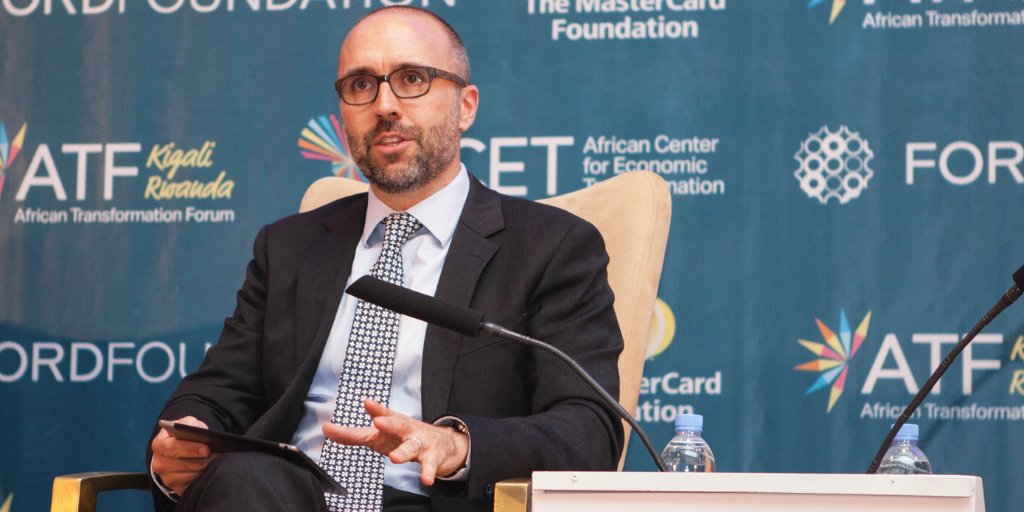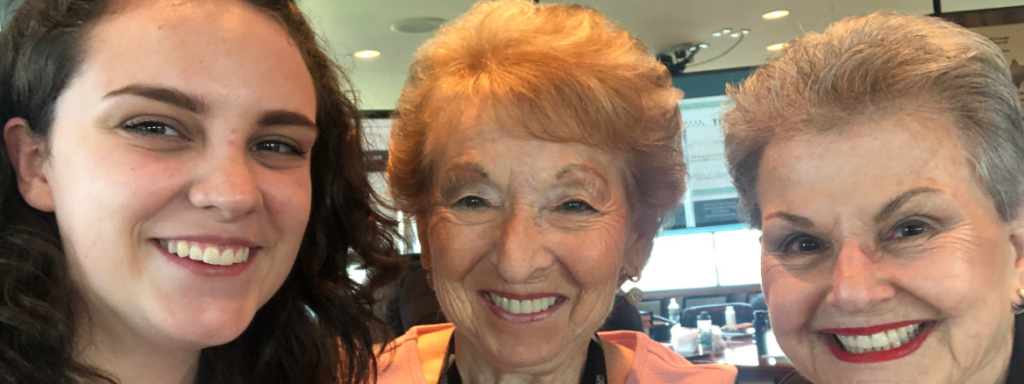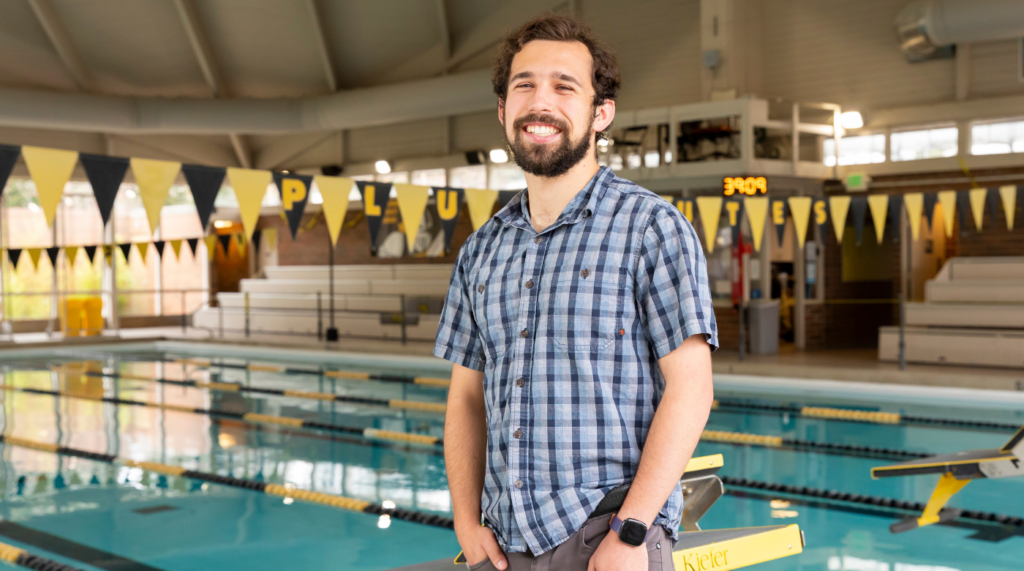Page 43 • (635 results in 0.028 seconds)
-

In a 2017 issue of PLU’s ResoLute magazine, alumnus Jacob Taylor-Mosquera ’09 shared about his experience as an adoptee, finding and reconnecting with his biological family in Colombia, and the tension he still navigates today as a citizen of two countries and a member of…
biological family (in a way, an extension of myself) during the month of October back in 2004. It was the 26th, which was a Tuesday that year. I remember it like it was yesterday. This is such a personal story. Why was it important for you to write this book and share your memoir with readers? First, I wanted to offer my story to the growing body of literature celebrating adoptee voices. We hear from adoptive parents a lot about their experiences, but I feel like we need to hear from adoptees about
-

A year after graduating from Pacific Lutheran University, Mark Carrato ‘94 had been island hopping around rural southwestern Japan teaching English to junior high school students. But now he had a decision to make—return to the United States and begin the law school he had…
Africa program, Carrato is continuing a life of service looking outward. Born in Japan to an international businessman father, Carrato has fond memories of the country and the Japanese objects that decorated his childhood home. At PLU, Carrato majored in international business with a minor in English literature. “I love the liberal arts underpinnings PLU has,” he says. “The fact that I could be an English lit minor with an international business major at a school that had a professional business
-

Audrey Borloz ’24, Fani del Toro ’24, Aidan Donnelly ’25, Grady Lemma ’25, and Angela Rodriguez Hinojosa ’24 spent the summer focused on synthesizing organic compounds called antenna ligands for lanthanide ions. When these molecules interact with specific ions like europium(III) or terbium(III), they exhibit…
requires.” “We spent a lot of time researching literature experiments to gain familiarity with the reactions we planned to run. In my case, they rarely went according to plan, but I learned something each time, which helped guide me toward the next step.” "These lessons extend outside the lab, and this kind of continuous learning and reevaluation is helpful in both academic and professional contexts," stated Lemma. Professor Yakelis and Donnelly working together in open lab in Rieke Science Center
-
Biology Courses Take the following two introductory biology courses: BIOL 225: Molecules, Cells and Organisms BIOL 226: Genes, Evolution, Diversity and Ecology Many programs require some of the upper
English courses prior to matriculation. The English requirement is intended to demonstrate competency in grammar and composition as well as comprehension and analysis of written work. In general, the English requirement is met by taking courses that pharmacy schools would recognize as writing or literature courses. In addition, some schools recommend that you take a course in public speaking.ExperienceIt is important that you have a good understanding of the field of pharmacy prior to submitting your
-

TACOMA, WASH. (Feb. 28, 2020 ) — Cece Chan’s activism awakening came in high school. As a third-generation Asian young woman, she realized Seattle Public Schools’ majority-white institution and Eurocentric curriculum had damaged her own cultural understanding due to lack of representation within textbooks or…
story, which is not often talked about in education,” she says. Chan visited Seattle Public School high schools to talk to students, teachers and activists. She researched how the Eurocentric focus within history, literature and STEM education fields has affected people of color in damaging ways. For her achievement in film and activism, Chan won one of three $1,000 Black Education Matters Student Activist Awards (BEMSAA), presented by former Seattle Seahawk and bestselling author Michael Bennett
-
Biology Courses Take the following two introductory biology courses: BIOL 225: Molecules, Cells and Organisms BIOL 226: Genes, Evolution, Diversity and Ecology Many programs require some of the upper
English courses prior to matriculation. The English requirement is intended to demonstrate competency in grammar and composition as well as comprehension and analysis of written work. In general, the English requirement is met by taking courses that pharmacy schools would recognize as writing or literature courses. In addition, some schools recommend that you take a course in public speaking.ExperienceIt is important that you have a good understanding of the field of pharmacy prior to submitting your
-

First, we are glad that you chose PLU. Our mission is to prepare students for lives of thoughtful inquiry, service, leadership, and care – and we definitely care about you and your growth as a learner, a person, and a historian. Whether you are starting…
have included the Geopoliticization of Sex with my advisor, Dagmar Herzog, and The Era of the Witness: 20th Century Poland in Firsthand Accounts with Professor Malgorzata Mazurek at Columbia. I also took the American Literature Survey, a year-long intensive introductory course to complete my minor in U.S. history. The professor describes it as half 18th century salon, half bootcamp. Carli outside the Museum of Jewish Heritage, sporting her ID badge as an intern. I could not believe how little I
-

Henri Coronado-Volta grew up in Seattle, Washington, and chose PLU because the smaller school offered the opportunity to build community, a chance to continue swimming, and living close to home—but not too close. He double majored in global studies and Hispanic studies and minored in…
through classes and study away programs. Networking opens up many opportunities. While at Seattle Children’s, I was responsible for reaching out to find traumatic brain injury resources in Alaska for a study at Children’s. In the fall of 2022, I did preliminary literature review research and interview-question Spanish translation for a University of Washington palliative care and dementia issues project. As part of that project, I’m helping translate resources for brain injury recovery. I also
-

Sophia Barro ’22 is a senior education major and religion minor at PLU. She recently completed full-time student teaching at Lakeview Hope Academy. We spoke with Barro about her experiences at PLU and as a student teacher, and about the values she hopes to inspire…
grade, and I have had the privilege and the blessing to be able to observe teaching in the local Catholic schools. I have always said that I want my students to be critical thinkers and social justice leaders. I think it is really important to have diversity responsive literature in classrooms and I always tie in social justice components including identity, justice, diversity, and action in my teaching. I always said that no matter which school I end up working at, I would uphold that same
-
Jeffrey Ebel, Senior Capstone Seminar Solutions of sulfate-stabilized gold nanoparticles (GNP's) were synthesized based on variations to the methods of Davis et al.
Capstone Seminar A selection of the Ribes genus gooseberry/currant plants native to the Northwest were targeted to extract, isolate, and identify antimicrobial compounds based on ethnobotanical literature. Air-dried roots and stems of R. divaricatum, R. aureum, R. bracteosum, and R. Sanguineum were washed with refluxing petroleum ether and then extracted with methanol. Upon concentration in vacuo, the crude extracts were tested against a variety of Gram-positive and Gram-negative strains of bacteria
Do you have any feedback for us? If so, feel free to use our Feedback Form.


